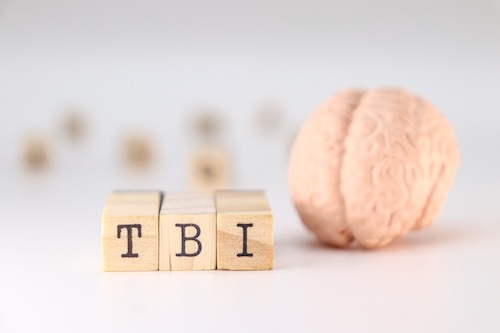TBI and Memory Loss: What You Need to Know to Prove a Long-Term Injury
A traumatic brain injury (TBI) can cause memory loss that lasts weeks, months, or even a lifetime. These effects often disrupt daily life, strain relationships, and prevent a return to work. In Texas, proving that a TBI has caused long-term memory problems is key to securing compensation.
In this blog, you will learn how traumatic brain injuries affect memory, what evidence is needed to prove long-term impairment, and why working with an experienced Dallas attorney who understands TBI cases is critical to protecting your legal rights.
The Science Behind TBI and Memory Impairment
Understanding how a traumatic brain injury (TBI) affects memory helps support long-term injury claims and guides proper medical care.
How Brain Injuries Disrupt Memory Functions
A traumatic brain injury can damage parts of the brain that control memory. This includes the hippocampus and frontal lobes, which help with memory storage and retrieval. When these areas are injured, memory loss and cognitive impairment often follow. Brain injuries may result from a direct blow, a sudden jolt, or penetration of the skull. The injury can impair a person’s ability to recall recent events, learn new information, or organize thoughts clearly.
Memory problems are common in TBI patients. Symptoms can include difficulty remembering names, dates, conversations, or where items were placed. In severe traumatic brain injuries, memory deficits may be permanent. In mild traumatic brain injuries, such as concussions, symptoms may be temporary but still affect daily life.
Types of Memory Loss Caused by TBI
There are two main types of memory loss linked to brain injuries. Retrograde amnesia affects memories from before the traumatic event. Anterograde amnesia affects the ability to form new memories after the injury. Both conditions are common in people who suffer from moderate to severe TBI.
These conditions can make it hard to remember recent events, follow instructions, or complete complex tasks. Family members may notice behavioral changes or confusion. TBI patients may struggle with thinking skills, memory tasks, and basic routines.
Medical Imaging and Cognitive Testing
Doctors use medical imaging and cognitive tests to identify brain damage. Magnetic resonance imaging (MRI) and computed tomography (CT) scans can show internal injuries or skull fractures. Neuropsychological tests assess memory ability, attention span, and processing speed. These tools help confirm memory impairment after a head injury.
Even in mild TBI cases, medical imaging and clinical evaluations are important. They support the diagnosis and connect memory difficulties to the traumatic injury.
Research on Memory Impairment After TBI
Research suggests that traumatic brain injury increases the risk of long-term cognitive problems. Studies by the National Institute of Neurological Disorders and Stroke and the Centers for Disease Control show that memory loss affects a wide range of TBI patients. Previous research links TBI to conditions like Alzheimer’s disease, especially in older adults and contact sports participants.
TBI may also affect memory performance during everyday life. Victims often report problems with remembering tasks, appointments, and recent conversations. These symptoms may continue for an extended period after the traumatic event.
The Role of Medical Evidence
Medical records are key when proving long-term memory loss from a traumatic brain injury. This includes doctor evaluations, test results, and documentation of symptoms over time. Personal injury lawyers often rely on this evidence to build strong cases for compensation.
Common Causes of TBI in Texas: Everyday Risks with Lifelong Consequences
Traumatic brain injuries can happen in many routine situations and often lead to lasting memory loss and cognitive problems.
Motor Vehicle Accidents
Car accidents are one of the leading causes of traumatic brain injury in Texas. A sudden stop or crash can cause the brain to hit the inside of the skull, leading to mild, moderate, or severe TBI. Victims may lose consciousness or suffer memory loss without any visible head injury. Failing to wear a seat belt increases the risk of skull fractures and serious TBI. All-terrain vehicle crashes are also a growing concern, especially in rural areas.
Falls and Slip Accidents
Falls are a major cause of TBI, especially in older adults. A fall from stairs, ladders, or wet floors can result in a head injury that damages memory functions. Many victims experience difficulty remembering the event, confusion, or trouble with balance. Fall-related TBIs often occur in nursing homes, construction sites, or public areas lacking proper safety measures.
Sports and Recreational Activities
Contact sports like football, boxing, and hockey often lead to concussions and mild traumatic brain injuries. Repeated hits to the head can result in long-term memory deficits and behavioral changes. Youth athletes are at higher risk due to underdeveloped brain structures. Coaches and medical teams may miss early signs of cognitive impairment, allowing athletes to return to play too soon.
Workplace Accidents
Construction sites, oil fields, and industrial areas carry a high risk for head injuries. Falling tools, machinery accidents, or unsafe scaffolding can cause a traumatic injury. Workers who suffer TBI often report memory problems, slow thinking, and trouble focusing on tasks. Employers are required to provide safety gear and training to reduce the chance of severe injuries.
Assaults and Violent Incidents
Intentional violence can also cause traumatic brain injury. Blunt force trauma during an assault may lead to a loss of consciousness and lasting memory difficulties. Victims may experience symptoms such as retrograde amnesia, blurry vision, and mood changes. These injuries are often reported in domestic violence cases or criminal assaults.
Legal Definition of Traumatic Brain Injury in Texas Personal Injury Law
Understanding how Texas law defines traumatic brain injury helps injured individuals prove long-term memory loss in personal injury claims.
TBI as a Serious Bodily Injury
Under Texas Civil Practice & Remedies Code § 41.001(6), a traumatic brain injury may qualify as a serious bodily injury. The law defines serious injury as one that creates a risk of death, causes permanent disfigurement, or results in long-term loss or impairment of a body part or organ. The brain is considered a vital organ, so damage to memory functions or thinking skills meets this standard in many cases.
A severe traumatic brain injury that affects memory performance, speech, or behavior may justify compensation for physical and emotional harm. Even a mild traumatic brain injury may be considered serious if symptoms last for an extended period and affect everyday life.
Legal Proof of Memory Loss
To support a personal injury claim, the memory impairment must be clearly linked to the traumatic event. A head injury must be documented through medical evidence, such as MRI or CT scans and neuropsychological exams. These show how brain functions have changed and confirm that memory tasks and cognitive ability are affected.
Legal claims often include records showing missed work, changes in behavior, and testimony from family members or doctors. Consistent medical documentation helps a personal injury attorney prove that the memory loss was caused by the injury and is not due to age or another health condition.
The Role of a Personal Injury Attorney
A personal injury lawyer in Texas can help collect and present evidence to show that a traumatic brain injury meets the legal threshold. This includes proving that the injury caused significant changes in memory, behavior, or thinking skills. Attorneys use expert witnesses, clinical evaluations, and medical records to build the case.
Consult With Texas Lawyers 365 About Your Traumatic Brain Injury ASAP!
If you or a loved one is suffering from memory loss after a traumatic brain injury, do not wait to seek legal help. The long-term effects of TBI can impact every part of your life, from work to relationships to your ability to care for yourself. Our team at Texas Lawyers 365 has the experience and knowledge to handle complex TBI cases and understand how memory impairment affects your future.
Contact us at 800-800-8000 for a free case review today!








